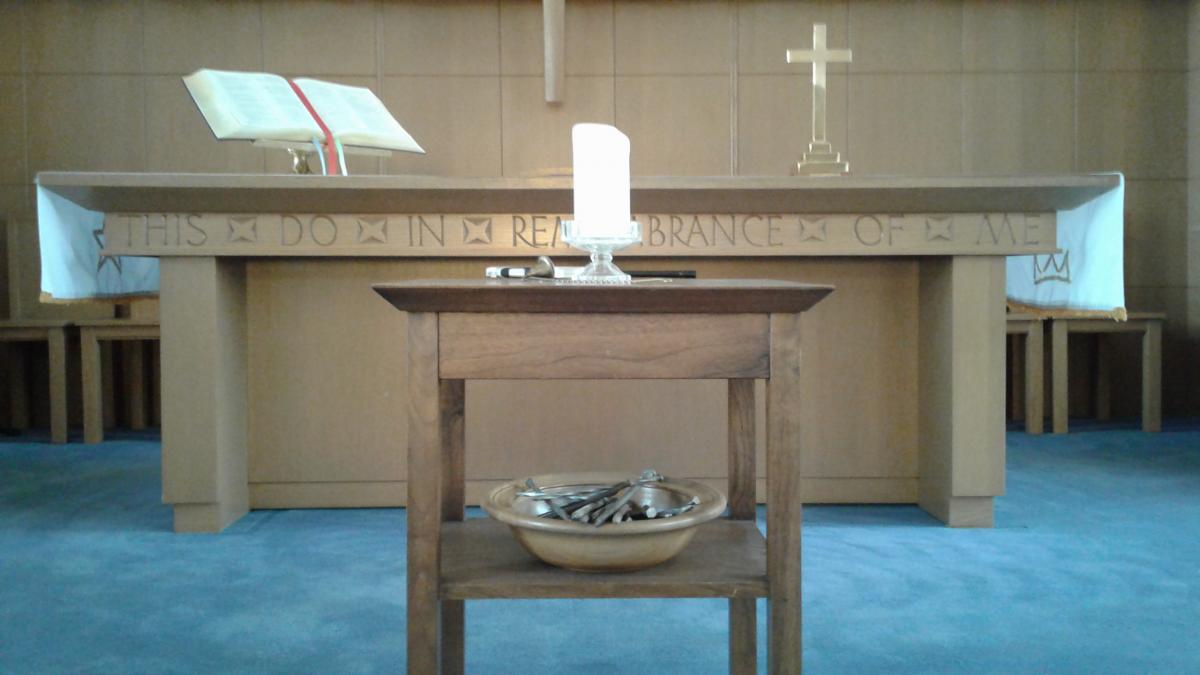Sermon - Nov 20, 2022 Christ the King

Christ the King
Upon the death of Elizabeth the second, the whole world was given a lesson in sovereignty. A monarch who helped define the role for the twentieth century, her majesty the Queen was the symbol of a nearly thousand year history of the exercise of power. Here was a monarch whose ‘power’ was gently exercised as influence. A weekly audience with every sitting Prime MInister - an endless series of public appearances - Queen Elizabeth the second gave us a radically different example of what a queen (or king) might be.
While some would argue that the empire is dead (and good riddance) the British monarchy is part of our democracy here in Canada, and The queen herself has been a fixture in our lives. The influence will not quickly disappear.
I offer these thoughts on a day when the church prepares to bring the liturgical calendar to a close. Next week we mark the beginning of the season of Advent - the ‘warm-up for Christmas’ as some understand it. And before we celebrate Jesus’ birth - we take this day to consider Jesus’ legacy.
Christmas presents us with a child ‘born to be a king.’ So, what sort of king? And what sort of kingdom?
Generations of people have hungered for some sign of God’s promised kingdom. And the authors and prophets whose experiences find their way into Scripture, that kingdom was modelled on what they knew; a single, all-powerful ruler who had the power of life and death over their subjects.
Human rulers have aspired to this position - held it and abused it as countless kingdoms rise and fall. So the dream for the faithful was that God would fix this broken system - God would send the perfect ruler - God would rule, and all would be well.
The Israelites hungered for this reign of God, and so petitioned for a king, so that they would hasten the process. The argument went, if God’s chosen people choose a king, God’s kingdom cannot be far behind.
They were wrong.
By the time of Jeremiah, the nation is in exile, and those charged with ‘shepherding the people’ have instead led them to destruction. The human systems that were supposed to celebrate and anticipate the reign of God eventually fail and falter - because the humans in those systems get a taste for power. Jeremiah brings a word of correction, and a word of promise. God will lead - God will choose - God will redeem.
By the time Paul writes to the faithful in Colossae, Jesus has been crucified and raised. His story is spreading like wildfire, and Paul is writing the first theology textbooks of the Christian era. Yes, they’re just letters, but these letters help the reader understand how Jesus fits in the long and challenging history of the promise of God’s kingdom.
God’s very being has been present - the divine presence walked the earth - in a humble and very different way than was expected. There were no conquering armies, there was instead, compassionate presence. There was no armed insurrection, there was the mantra of ‘love your enemies.’ The trappings of royalty were no where to be seen, yet Paul says ‘in him [Jesus] all the fullness of God was pleased to dwell.”
Jesus presents a radically different example of what royalty could be - and he represents a kingdom like none we have ever experienced.
We who honour Christ as King need to remember that. For two thousand years, the church grew around an idea that the kingdom of God would be best served by an empire of faith. Successive church-sponsored empires then went on to ‘conquer in the name of Christ.’ The lessons of Jesus are lost in the carnage. The kingdom FOR God blotted out the kingdom OF God. Yes, there are moments of compassion and glimpses of grace as the church does what the church does, but the history of Christianity is littered with the kind of behaviour that honours human ambition over God’s glory.
So every year, we get a chance to reconsider. Every year, before we make our way towards the celebration of the birth of the Prince of Peace, we pause to honour Christ the King. The connection is not accidental - we are meant to make the connection - to be reminded that there is no Kingdom of God without the Prince of Peace.
Once again, this liturgical reminder comes while war rages - while human arrogance and greed rears its head. Once again we are challenged to keep our eyes on Jesus - to remember what a King can be.
 St. John's
St. John's




